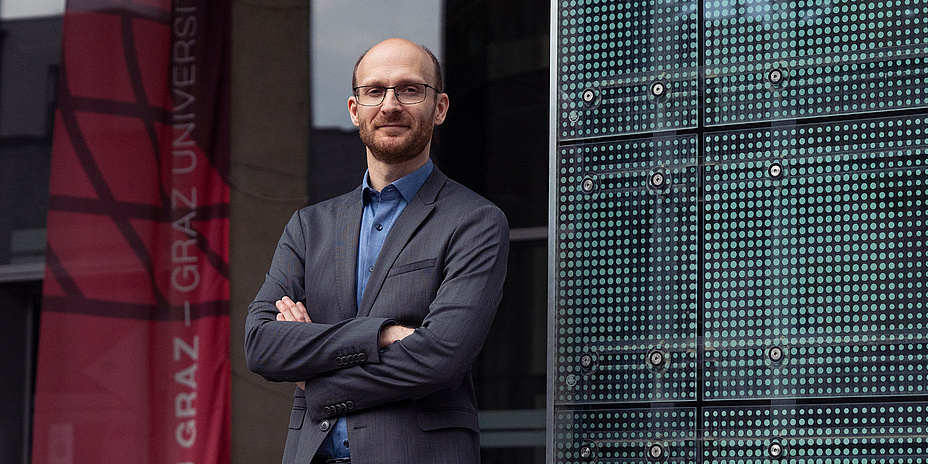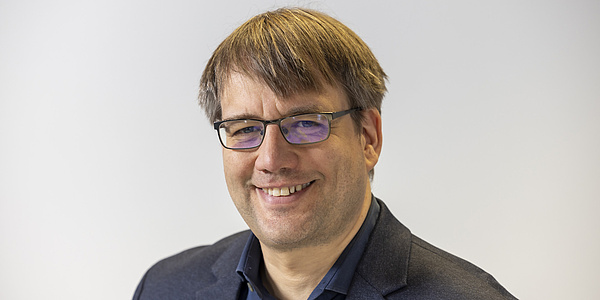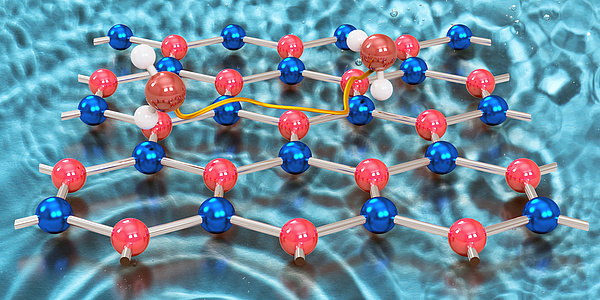Thomas Rath wins “Zero Emissions Award”

Photovoltaic cells made from organic compounds offer several advantages over conventional solar cells: they are light, extremely thin and flexible. In addition, their production-related CO2 footprint is relatively small. Thomas Rath from the Institute for Chemical Technology of Materials wants to further increase the efficiency and durability of organic solar cells. For his innovative research approach, he has now been honoured with the "Zero Emissions Award" by the alpha+ Foundation of the Austrian Science Fund FWF and will receive project-related funding of 460,000 euros. Felix Panis also received an award: the chemist from the University of Vienna is investigating peatlands and their ability to store CO2. His research will receive funding totalling 348,000 euros.
With the "Zero Emissions Award", the alpha+ Foundation supports research projects that close knowledge gaps in the field of the energy transition or pursue promising new approaches. Around 900,000 euros can be awarded annually for this purpose. The funding is based on a donation from US entrepreneur Patrick S. Dumont to the alpha+ Foundation.
Play video
Expanding the potential of organic solar cells
In recent years, the efficiency of organic solar cells has improved to over 19 per cent, which is mainly due to new absorber materials. This is where Thomas Rath's research project comes in: his aim is to investigate the properties of halogenated absorber materials in various solar cell architectures in order to utilise the full efficiency and stability potential of organic solar cells. His research is based on an interdisciplinary approach that includes aspects of material chemistry, device physics and characterisation at the nanoscale using analytical electron microscopy. In this way, he analyses halogen accumulation, the materials, reactions and processes involved and their effects. These investigations are the basis for an extended understanding of possible reactions of a solar cell to different conditions during operation. Based on this, design approaches for next-generation organic absorber materials can be developed. This should enable a further increase in efficiency and an improvement in the long-term stability of organic solar cells.
“Research into new solar cell technologies and materials can make photovoltaics, one of the most important pillars of a sustainable energy supply, even more versatile and efficient in the future. With my research project, I would like to contribute to laying the foundations for a new generation of organic solar cells,” says Thomas Rath.
Apply now for the 2025 Zero Emissions Award:
Researchers from universities and non-university research institutions can submit climate relevant research proposals for the Zero Emissions Award on an ongoing basis. Each year, €900,000 are available for research projects that focus on one of the following three areas:
- Basic research from all scientific disciplines with the potential to initiate innovations in the field of renewable energies and the energy transition
- Basic research for technologies that contribute to the success of the energy transition
- Basic research in the field of behavioural research on the use of renewable energies.
Kontakt
Thomas RATH
Dipl.-Ing. Dr.techn.
TU Graz | Institute for Chemistry and Technology of Materials
Phone: +43 316 873 32281
thomas.rath@tugraz.at




